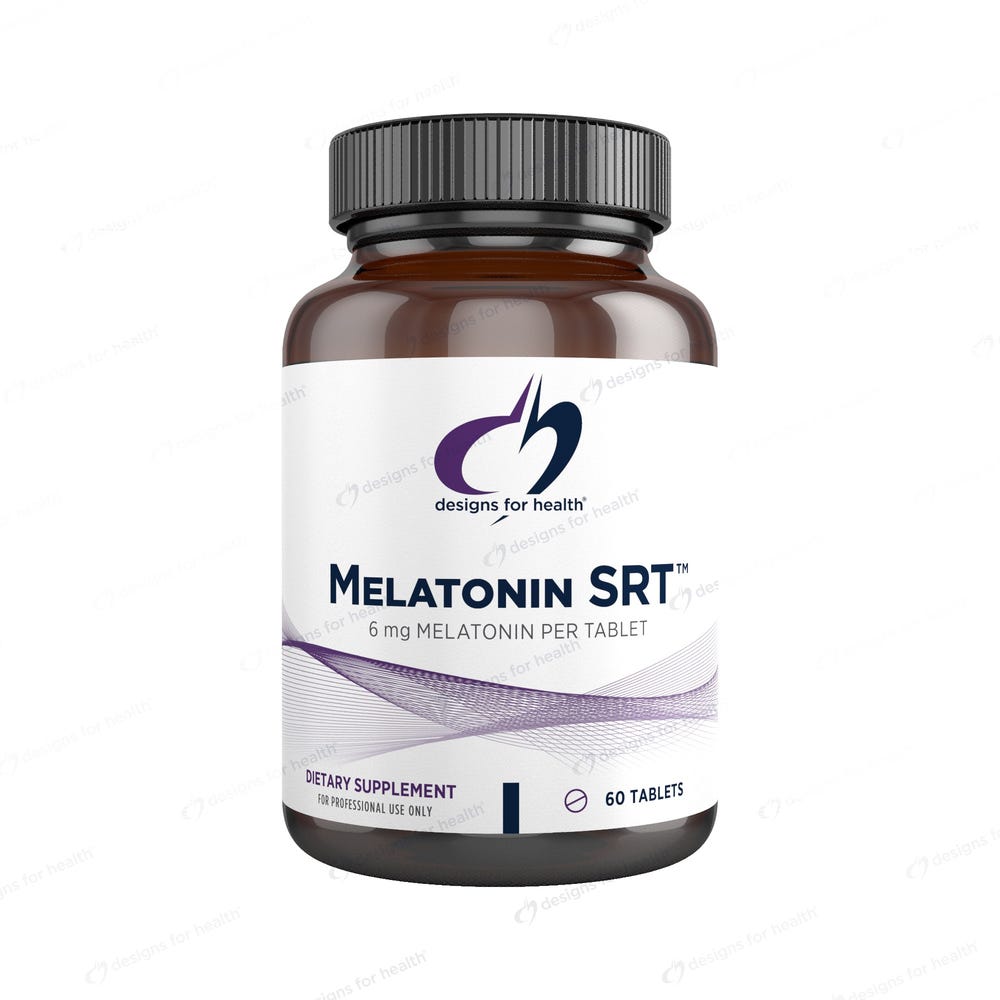Melatonin--More Than Just a Sleep Aid
Everyone can benefit from melatonin
Part of an ongoing series on how to use supplement and behavior-based plans to treat common maladies. To read the detailed supplement plan, order supplements, or download the patient resource sheets, go here to create a free patient account at Fullscript by entering your name and email address: Dr. Mark McDonald’s Fullscript dispensary
Melatonin is a hormone produced by the pineal gland in the brain. It cannot be obtained through the diet. Years ago I learned about the benefit of using high-dose melatonin to reduce jet lag from long-distance travel. Since then, melatonin has been proven to help with much more than sleep. It has such wide-ranging health benefits that I now recommend it to everyone.
Melatonin resets the circadian rhythm that determines the sleep-wake cycle.
This can be disrupted when changing time zones. In general, it takes someone one day to adjust for every hour of a change in time zone. Melatonin reduces this adjustment period. The best way to use it is before travel—several days before—by taking it at the time you expect to go to bed in the time zone of your destination. Once you arrive, continue to use it at that same time for several more days, until your circadian rhythm has fully adjusted to the new time zone. Fairly high doses are necessary: 5-10 mg per day.
Three years ago, research proved that using melatonin in smaller doses (3 mg per day) reduced both infection risk and recovery time for respiratory infections. Low-dose melatonin strengthens the immune system. When used along with vitamin D, zinc, and quercetin, the risk of contracting a respiratory viral infection dropped significantly.
Melatonin appears to be an excellent general purpose immune system booster, with no significant risks or side effects.
More recently, studies of children with ADHD found that even smaller doses of melatonin (0.5 mg) reduced symptoms of inattention by 14%. This reduction is independent of any other treatments, such as stimulant medication. It is reasonable to conclude that a similar benefit would be found in adults.
I now recommend that all my patients include low-dose melatonin in their regimen of daily supplements. The best form of melatonin is low-dose sustained release.
Designs For Health Melatonin SRT, represented in all three of the supplement protocols here, provides 3 mg of a slow-release melatonin that improves sleep quality, immune system functioning, and attention. Most importantly, the low-dose sustained release form comes without the risks of chronic high-dose melatonin use such as nightmares and suppression of the production of endogenous melatonin.
Below are links to three patient supplement plans that include Melatonin SRT. I am now sharing them with my Substack subscribers. Along with high-dose vitamin D and concentrated fish oil—two other critical supplements that cannot be adequately obtained through diet—everyone should be taking melatonin. It represents an inexpensive, risk-free, high-reward opportunity to improve your health.


-- ARTIFICIAL MELATONIN CAN BE TOXIC / DEADLY / CAUSE BLINDNESS ...!!
Any thoughts on liquid melatonin for sublingual absorbtion? I've always wondered what kind of oral bioavailability melatonin tabs have. I can think of another endogenous tryptamine, also produced in the pineal gland, which is completely metabolized in the GI tract before entering circulation.
There could be other benefits too, i.e. faster onset of sleepiness. There aren't many studies on sublingual melatonin.